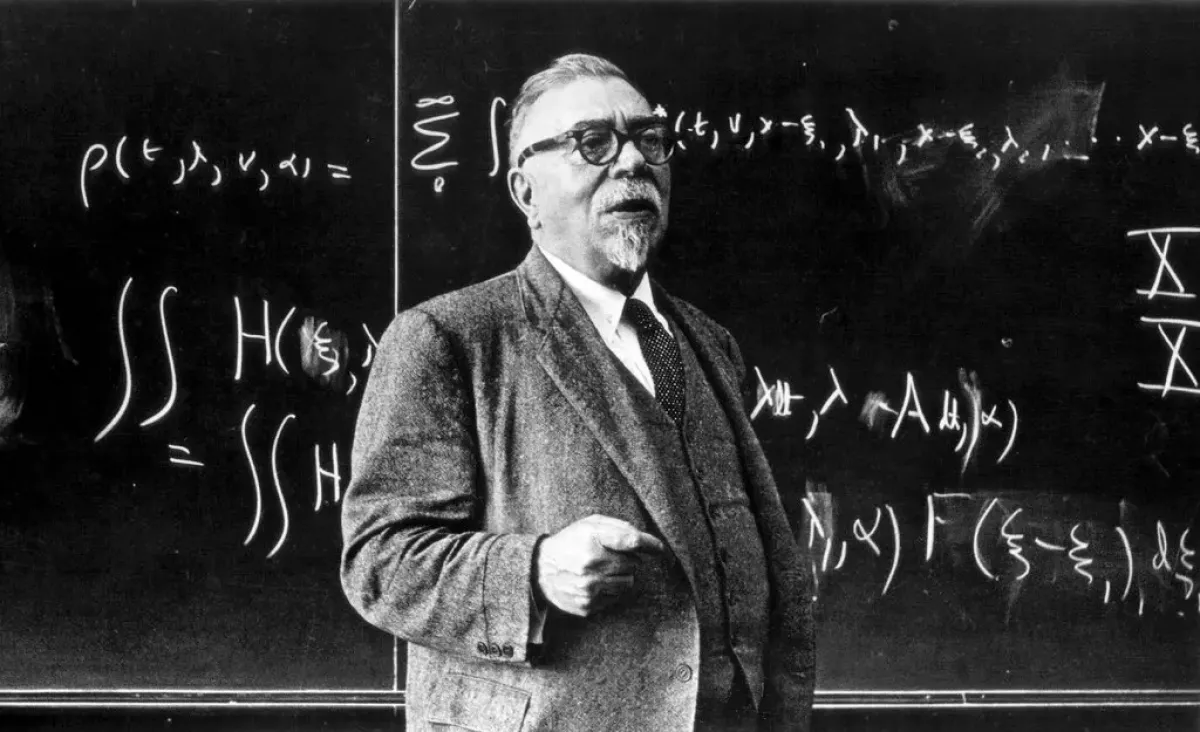What is happening around us Thoughts on the future of humanity
The outstanding Kyrgyz writer Chinghiz Aitmatov, in his famous novel The Day Lasts More Than a Hundred Years, which was published during the period of so-called "developed socialism" in the Soviet Union, brilliantly demonstrated one of the subtleties of that historical phase of life in the USSR. By portraying the personality of the main character, the writer also revealed his living environment – the barren steppes, where, in the years of "socialism's flowering," not only the achievements of world civilization had not yet arrived but even basic conditions for a full life were lacking. The hero was travelling to bury his friend on a camel, accompanied by six people in a wheeled excavator. This scene echoed with an entirely different backdrop of reality, coexisting alongside this practical lifelessness, where spaceships were operating and orbital stations were on the verge of being created. In other words, alongside humanity's latest technological achievements, there coexisted the harsh reality of mass poverty.
Why the timeless ideas and thoughts of the brilliant Chinghiz Aitmatov are remembered today? Perhaps it is, in part, because we are witnessing a similar picture of life before our very eyes—where the most mind-blowing technological marvels coexist with the staggering images of millions of refugees, whom certain biased forces (in the form of states or international organizations) treat as nothing more than a shuttlecock in badminton (or a ping-pong ball).
Such is "c’est la vie," some might say in this context. Yes, such is life. But aren’t it the people, the beloved creations of the Almighty, who create such obstacles for themselves, undermining the world that the Great Creator designed for humanity? And this is done with a justification that borders on "righteousness" for such inhuman actions, all while being fully convinced that tomorrow, they themselves will not fall victim to the same fate.

In 1897, the renowned British writer and publicist Herbert Wells, in his famous work The War of the Worlds, stated: "We must remember what ruthless and utter destruction our own species has wrought, not only upon animals, such as vanished bison and the dodo, but upon its own inferior races." Today, however, the issue at hand is not about "higher" and "lower" races. Though, wait a moment, isn't it precisely in the current period that certain political leaders have publicly divided our planet into a "blooming garden" and "jungles"? And others, declaring themselves "under God's protection," have granted themselves the right to play with the fates of hundreds of thousands of innocent civilians. The images surrounding this matter have so permeated the information space that the deaths of thousands of people in conflicts on the African continent are almost regarded as a "given" part of contemporary history.
But since the conversation has shifted to the topic of the information space, we begin to see other conflicts emerging in this historical period. Information... How it drives any society today. When the same biased forces try to present to everyone only what serves their own interests. This situation was foreseen by none other than the founder of cybernetics and artificial intelligence (AI) theory, Norbert Wiener, who stated, "Information is important as a stage in the continuous process by which we observe the outer world, and act effectively upon it."
But since we've mentioned the remarkable Wiener, let us also reference him in the context of the military lawlessness unfolding before our eyes and presented by interested parties in the direction they desire. As Wiener wrote, "Now, science is impersonal, and the result of a further pushing forward of the frontiers of science is not merely to show us many weapons which we may employ against possible enemies, but also many dangers of these weapons… There is no end to this vast apocalyptic spiral."

But the scientist went even further. And who could have done it better than him, as he was one of the creators of the "cybernetic," so to speak, approach to earthly life? Emphasizing that "we have taken unto us the devils of the age, and the compulsion of scientific warfare is driving us pell-mell, head over heels into the ocean of our own destruction," Wiener also revealed an aspect of today's highly relevant AI, without directly using the term. If we create a machine, he noted, that is so intelligent that, to some extent, it surpasses humans, we will not be able to make it completely obedient and control over it may prove very imperfect. Yes, the scientist clarified, a person can, of course, press a button and stop the machine. However since we do not fully control all the processes occurring in the machine, we may easily find ourselves unaware of when to press the button.
Uniquely said, especially considering the current boom around, and even within, AI. Without a doubt, so much positive could come to humanity through AI, but at the same time, its dangers for the entire human race are already starting to become apparent. In this light, we once again turn to Wiener, who emphasized that, in using intelligent machines, we ourselves must demonstrate more intelligence and more abilities than we did before we started using them.
Unfortunately, on a global scale, Norbert Wiener's call remains unheard. Well, perhaps it breaks through in isolated notes, but on a global level, entirely different categories dominate the planet. In this light, it is undoubtedly important to highlight how Azerbaijan has managed, in the words of President Ilham Aliyev, to position itself in the world as a country that "has built its development and future on national roots." As the head of state expressed a few years ago, "traditional values are our greatest asset." Therefore, "we are very pleased that the growing generation in Azerbaijan is being raised in the national spirit, the spirit of patriotism, and, at the same time, in traditional values." These values, however, "are being tarnished and replaced in various corners of the world by campaigns promoting so-called 'new values,' alien to 'us and incompatible with our national mindset.'" In this regard, "we must protect ourselves and, especially, the younger generation from this foreign and negative influence." The policy pursued by Azerbaijan in this direction deserves "the highest praise."
We can only continue to support and develop this course, together and individually.








